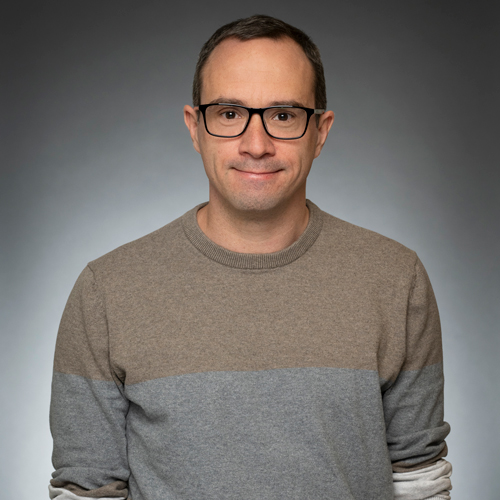Biography
Overview of research interests
Dr. Downey brings expertise in high-throughput genetics and proteomics as well as extensive experience in exploiting model systems to shed light on evolutionarily conserved pathways required for cell homeostasis. His research program focuses on the intersection of the emerging field of non-histone protein acetylation and the regulation of cellular stress responses, both metabolic and genomic. While acetylation machineries have long been known to regulate eukaryotic stress pathways via the acetylation of histone tails at gene promoters, more recent work has demonstrated that these proteins also impact diverse biological pathways in all kingdoms of life through the modulation of non-histone targets. Dr. Downey hypothesizes that these nonhistone targets are critical regulators of human disease states that can be exploited for improved diagnoses and novel treatments.
Current research focus
Dr. Downey’s most recent work has employed mass spectrometry to decipher how acetylome is regulated by opposing enzymes - called HATs and HDACS - previously implicated in various aspects of metabolic control and genome stability. While this work began in yeast, Dr. Downey’s lab has more recently extended these methods to human cells wherein they have identified conserved protein targets for future study.
Dr. Downey’s work has identified thousands of acetylation sites and determined enzymes responsible for regulating many of these. However, why HAT and HDAC enzymes target some proteins and not others, and the downstream consequence of their actions, remains poorly understood. Moving forward, they will focus on the regulation and function of targeted acetylation sites that they have identified. In terms of regulation, the Downey lab is keen to determine the role of HAT and HDAC binding proteins in defining substrate specificity. Such binding partners are often mutated in human cancers and metabolic syndromes and they hypothesize that altered acetylome profiles in these mutant cells may underlie specific disease pathologies.
Dr. Downey and his team will also look to integrate our mass-spectrometry analyses with genomewide functional assays. For example, they recently carried out a genome-wide screen in yeast to identify conserved genes whose deletion renders cells sensitive to small-molecule inhibitors of HDACs. These experiments have linked acetylation signaling to exciting and unexpected areas of biology including ribosome biogenesis and the regulation of cell membranes. Dr. Downey’s vision for the future is a research group that fully integrates studies in yeast and mammalian tissue culture to understand how acetylation based signaling can be exploited for diagnosis and treatment of human disease. They are actively seeking collaborations at all levels of their work.
